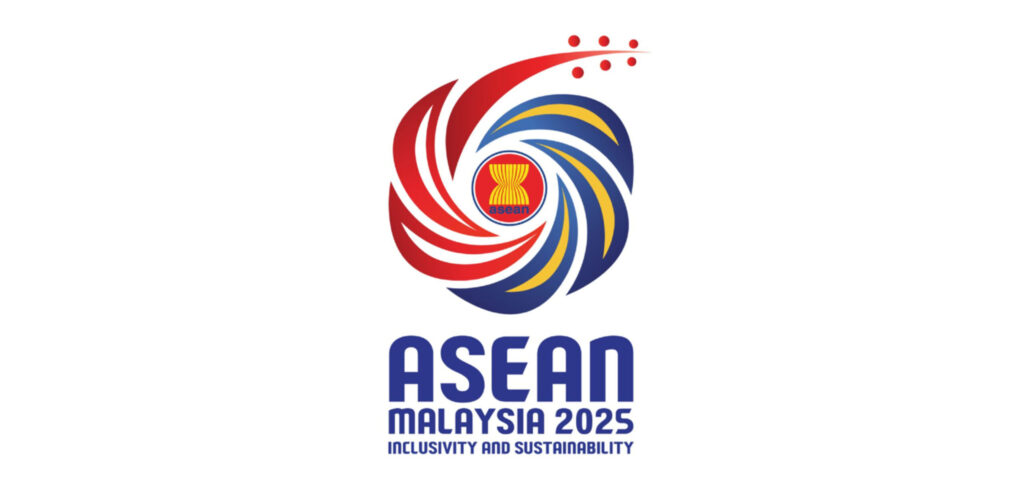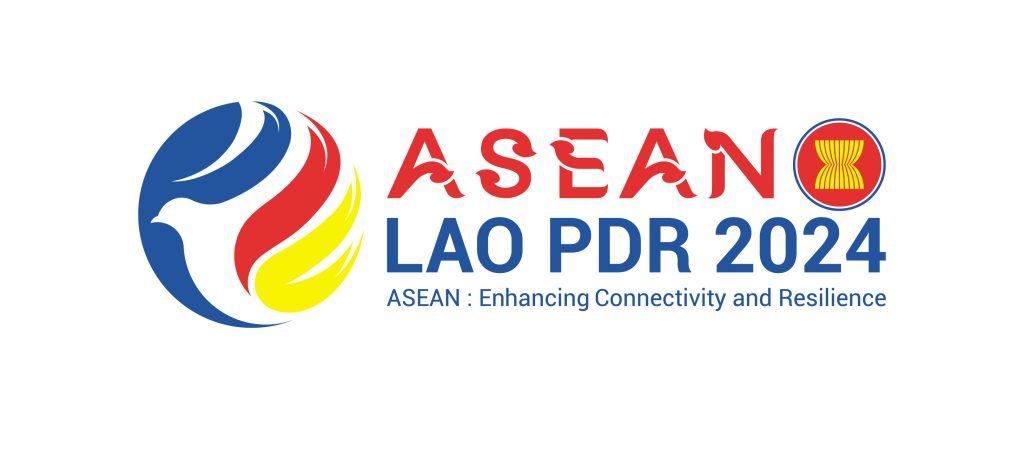
The ASEAN Chairmanship is a vital role that rotates annually among the member states of the Association of Southeast Asian Nations (ASEAN), following the alphabetical order of their English names. When a member state takes on the Chairmanship, it assumes the responsibility of presiding over various significant meetings, including the ASEAN Summit and its related gatherings, the ASEAN Coordinating Council, the three ASEAN Community Councils, relevant sectoral ministerial bodies, and the Committee of Permanent Representatives. (ASEAN)
The member state in charge is tasked with actively promoting and enhancing the interests and well-being of the ASEAN community. This involves forming initiatives aimed at building a cohesive ASEAN Community through effective policy-making, coordination, and cooperation, while ensuring that the principles of centrality and consensus remain at the forefront of ASEAN’s agenda. The Chair also plays a significant role in addressing urgent issues or crises that may arise, providing necessary mechanisms and support to respond swiftly and effectively to such challenges. Moreover, the member state holding the Chairmanship acts as the representative of ASEAN in cultivating and strengthening relationships with external partners. This includes engaging in diplomatic efforts that bolster ASEAN’s presence and influence on the global stage. In addition to these responsibilities, the Chair may undertake other functions as mandated by the ASEAN Charter, ensuring that the goals and objectives of ASEAN are met during its tenure. (ASEAN)
The Lao PDR has successfully chaired ASEAN twice prior to 2024. The first chairmanship, held in 2004-2005, was under the theme of “Advancing a Secure and Dynamic ASEAN Family through Greater Solidarity, Economic Integration and Social Progress”, while the second chairmanship was in 2016, with the theme of “Turning Vision into Reality for a Dynamic ASEAN Community.” (Mantong et al, 2024)

The Lao PDR chaired ASEAN for the third time in 2024. Lao PDR’s ASEAN Chairmanship in 2024 focused on the theme of “ASEAN: Enhancing Connectivity and Resilience.” The theme itself emphasizes connectivity and resilience, the two critical aspects of ASEAN’s objectives. Connectivity refers to the integration of economies, infrastructure, and people across member states, facilitating trade, investment, and cultural exchange. Resilience signifies the capacity of ASEAN to withstand and adapt to various challenges, including economic crises, environmental disasters, and geopolitical tensions. (Mantong et al, 2024)
On enhancing resilience, there are five priorities. The first one is the development of strategic plans in implementing the ASEAN Community Vision 2045. This priority aims to develop actionable strategies that align with the long-term vision for a resilient and people-centered ASEAN, addressing challenges by ensuring that member states have a clear roadmap for sustainable development. The second priority is the enhancement of ASEAN Centrality. Through promoting ASEAN centrality, member states can better coordinate responses to challenges such as climate change and health crises. (Mantong et al, 2024)
ASEAN’s third priority involves environmental cooperation, necessitating collective action to combat climate change and promote sustainable practices. Joint environmental projects focused on sustainable agriculture, such as organic farming and agroforestry, can be initiated by member states. This approach strengthens food security while protecting the environment through the sharing of best practices and minimizing the use of harmful chemicals. The fourth priority seeks to empower women and children, recognizing their vital roles in community resilience and development. Educational programs teaching sustainable agricultural practices and disaster preparedness can enhance the participation of these groups in food production, while initiatives improving nutrition and health outcomes foster overall community resilience (Breiling, 2019; Mantong et al, 2024). Enhancing ASEAN centrality is a key priority, emphasizing the coordination of responses to shared challenges like climate change and health crises. Member states should establish a regional framework that facilitates collaboration during disasters. This framework should include a shared database tracking food resources and transportation capabilities to ensure efficient aid and food distribution during crises. Developing regional food security networks will further enable the efficient sharing of resources and support among member states (Breiling, 2019).
The fifth priority focused specifically on the health development resilience in a new context. The focus on health development resilience demands robust healthcare systems capable of withstanding health crises. ASEAN member states should collaborate to strengthen healthcare infrastructure, particularly in remote areas with limited access to services. Sharing resources and expertise will improve coordinated responses to health emergencies. Joint research initiatives at the intersection of public health and food security can support the development of comprehensive policy frameworks, ensuring both sectors are resilient in the face of disasters (Breiling, 2019; Mantong et al, 2024).
Malaysia is poised to assume the ASEAN Chairmanship in January 2025 under the theme of “Inclusivity and Sustainability” (ASEAN Malaysia 2025), amid a period of considerable geopolitical complexity. A central task for Malaysia will be the drafting of the ASEAN Community Vision 2045, the successor to the current Vision 2025 guidelines. This new structure will define the long-term strategic direction of the organization, addressing evolving regional and global dynamics. Beyond charting ASEAN’s future course, Malaysia will confront immediate challenges that demand attention. The burgeoning cyber-scamming industries flourishing within the region pose a significant threat to economic stability and public safety. Simultaneously, escalating tensions between several Southeast Asian states and China over disputed territory in the South China Sea necessitate careful diplomacy and adherence to international law (Hutt, 2024). Maintaining ASEAN’s cohesiveness and centrality is of paramount importance. As Malaysian Prime Minister Anwar Ibrahim has stated, dialogue and cooperation are fundamental for establishing harmony and good relations (Hutt, 2024.)
Malaysia’s upcoming ASEAN Chairmanship in 2025 prioritizes the development of strategic plans for executing the ASEAN Community Vision 2045, which corresponds to the first priority noted by Mantong et al (2024). Regarding the second priority in strengthening ASEAN centrality, contemporary issues encompassing cyber scamming and territorial disputes in the South China Sea call for cautious diplomacy and commitment to international law (Hutt, 2024). According to Prime Minister Anwar Ibrahim, the necessity of preserving ASEAN’s unity and centrality emphasizes how crucial communication and collaboration are in tackling these issues (Hutt, 2024). Public safety and economic stability may be impacted by the problems of cyber scamming and territorial disputes, which may have an effect on vulnerable groups like women and children. In addition to that, a coordinated approach is necessary to respond to these complexities effectively (Breiling, 2019; Mantong et al, 2024).
References
ASEAN Official Web. https://asean.org/category/chairmanship/page/2/
CSIS Special Edition Commentaries: Analysis of 2024 ASEAN and Related Summits. https://s3-csis-web.s3.ap-southeast-1.amazonaws.com/doc/ASEAN_COMMENTARIES_SPECIAL_EDITION2024.pdf?download=1
Towards a Resilient ASEAN, Volume 1, Disasters, Climate Change, And Food Security: Supporting ASEAN Resilience, Economic Research Institute for ASEAN and East Asia. https://www.eria.org/uploads/media/Books/2019-Towards-a-Resilient-ASEAN-Vol1/Towards-a-Resilient-ASEAN-Vol-1.pdf
What to expect from a Malaysia-chaired ASEAN in 2025. https://www.dw.com/en/what-to-expect-from-a-malaysia-chaired-asean-in-2025/a-71014256
ASEAN Malaysia 2025. “About ASEAN 2025.” https://myasean2025.my/about-asean-2025/#:~:text=The%20theme%20of%20Malaysia’s%20ASEAN,no%20one%20is%20left%20behind